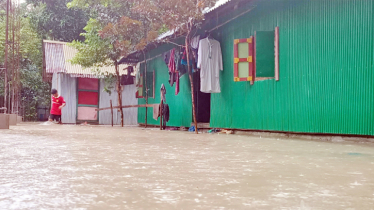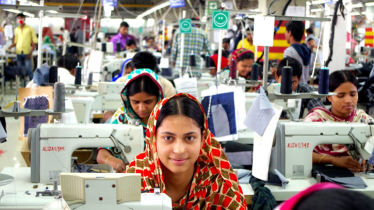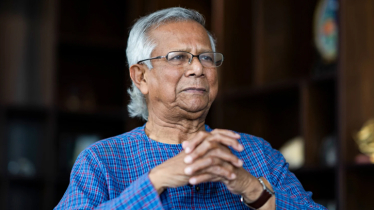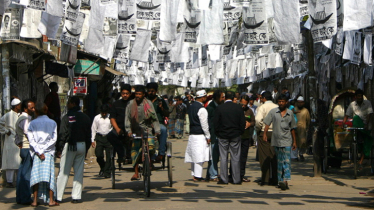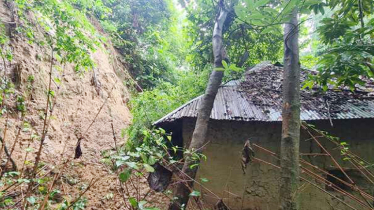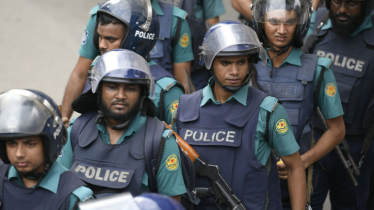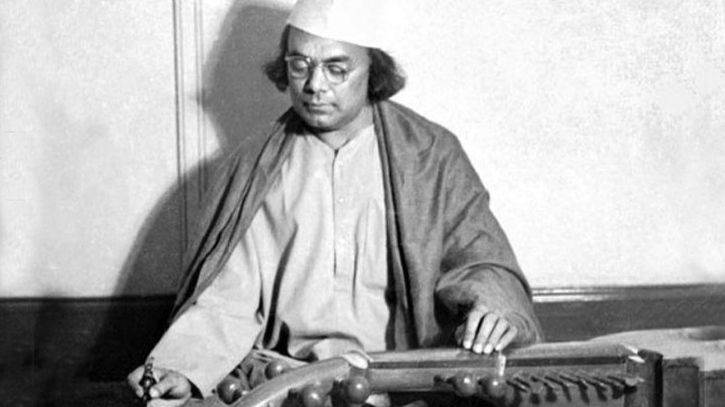
Kazi Nazrul Islam. Photo : Collected
Renowned national poet Kazi Nazrul Islam’s well-known song, “Karar Oi Louho Kopat,” has recently come under scrutiny as it was used in the Hindi movie “PIPPA” with a distorted tune. This rendition has sparked strong condemnation and protests from both the people of India and Bangladesh. Many have criticised Oscar-winning Music Director AR Rahman for his role in directing the music for this iconic song.
Kazi Nazrul Islam dedicated his life to the struggle for the country and its people – particularly for the Bengali nation. His commitment to the cause of freedom and his aspiration to earn the love of the people and liberate the nation remained the focal point of his entire existence.
In December 1921, after returning to Calcutta from Cumilla, Kazi Nazrul Islam composed “Karar Oi Louho Kopat,” a song that is often regarded as one of the best rebellion songs in Bengal’s history. Published as a poem on January 20, 1922, the song became a symbol of resistance and this is why British government banned the song.
Despite facing inhumane conditions and harsh treatment in prison, Nazrul Islam continued to sing “Karar Oi Louho Kopat,” rallying fellow inmates and transforming the jail into a hub of inspiration and revolution. The poet’s resilience and his ability to strengthen others through his songs became evident during this challenging period.
The movie “PIPPA” centers around a important part of the Bangladesh Liberation War and features a total of five songs, including the iconic “Karar Oi Louho Kopat.” While the song played a vital role during the liberation war, inspiring and encouraging freedom fighters, its inclusion in the movie has stirred controversy due to the distorted rendition by AR Rahman.
Each of Nazrul's creation including songs, poems encapsulate the essence of Bengali spirit. The melody of the song, the mood of the poem—every nuance resonates with the human body and mind, evoking inspiration and energy. Specially, the timeless nature of “Karar Oi Louho Kopat” not only motivated those on the battlefield but also stirred the hearts of Bengalis both within and outside the country, urging them to sacrifice for their homeland.
The makers of “PIPPA” may have chosen the song to reflect the reality of the liberation war, but it seems they underestimated the impact of altering such a historically significant composition. AR Rahman, as the music director, should have preserved the original tune and rhythm, considering the song’s real contribution to the liberation war.
Messenger/Disha


